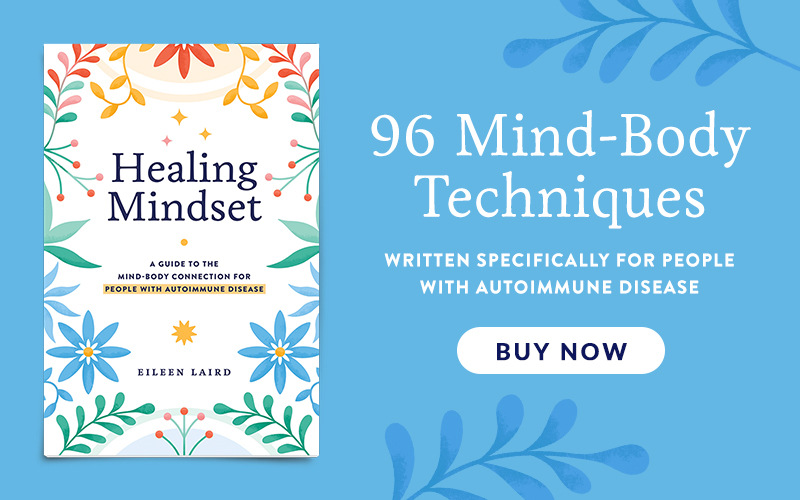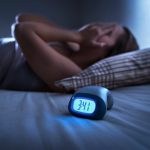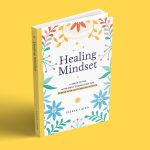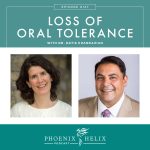“Sometimes the questions are complicated
and the answers are simple.”
~ Dr. Seuss
Food vs Lifestyle
When we follow the Paleo Autoimmune Protocol, food is foremost in our mind. We avoid the foods that exacerbate autoimmune disease. We look forward to the day when we can eat them again. And we go out of our way to eat healing foods, like bone broth and organ meats. The right food is essential, but healing is about more than just food. Lifestyle affects autoimmunity just as strongly. Healthy choices turn off inflammatory genes, while a stressed-out lifestyle turns them on. Here are five things you can do to help your body heal:
1. Sleep
If you’re like most of us in the United States, you prioritize everything above sleep. You stay up late to “get important stuff done.” You rise early to squeeze more time into your day. Some people even pull all-nighters to meet a deadline. Here’s the thing: there is nothing more important than your sleep. That is when your body heals itself. The less you sleep, the less you will heal; this is a biological fact you cannot override. You also can’t “catch up” on sleep. Although you may feel less tired after 1 or 2 good night’s sleep, the inflammation you have ramped up in your body takes much longer to tone down. You need a minimum of 7 hours every night, and 9 is even better. For help getting a good night’s sleep, here are 10 Ways to Improve Your Sleep Right Now.
2. Get Outside
In modern life, it’s easy to forget that human beings evolved to live outdoors. We are designed to make vitamin D from sunlight, and its deficiency is associated with many diseases, including autoimmunity. Our circadian rhythms are set by the natural cycle of day and night and affect our body on a genetic and cellular level. We are meant to move our bodies outside during the day, and sleep deeply in the dark of night. Modern life often has us doing the opposite, sitting inside all day and then finding it impossible to sleep at night. Our health suffers as a result. Do your best to get outside every day, even if just for a short while. Take a walk, lie in the sun, read in the shade, breathe in the fresh air, you can even work outside by answering phone calls and encouraging “walking meetings”. Remember there’s a world outside these walls.
3. Learn to Say No
Let’s face it: healing takes time. Not just in terms of patience and reversing our symptoms over the long-term. It also takes an incredible amount of time every day: cooking our food, prioritizing sleep, and making time for other healthy activities like relaxation, exercise, detox baths, etc. It requires putting yourself first, which can feel very unnatural, especially if you have a family and you’re used to putting yourself last. It’s necessary, though. When you’re sick, your whole family suffers alongside you. Prioritizing your health helps everyone. So, where are you going to find the time? Answer: you need to say no to something else – several somethings, actually. Take a good look at your life and see what responsibilities you can let go and transfer to someone else. If you don’t think you can let anything go, consult an objective friend to help you prioritize.
4. Learn to Love Your Body
With autoimmune disease, we’ve been told our bodies have betrayed us, are attacking us, and have become our enemies rather than friends. This simply isn’t true. The body’s whole purpose is to keep us healthy and alive, and they’ve done everything in their power to do so, until they could do no more. Symptoms are their way of telling us something is wrong, and autoimmunity is a miscommunication within the body, not an intentional war within. If we want to heal, it’s much more effective to realize that we are one with our bodies. We can’t live without them. When we get angry, blame and hate our bodies, we’re actually hating ourselves. That’s not a healing stance and often leads to bad choices. Practice loving your body (and yourself) instead. If your child is sick, do you get mad at them, or do you nurture them, and do everything in your power to help them be well? Don’t our bodies deserve that same unconditional love? Don’t we?
5. Take a Computer-Free Day
I saved this one for last, because it gives you the chance to turn off your computer (or smartphone) as soon as you finish this article. Have you noticed that your attention span is really short lately? That you can’t sit still, you lack focus, you bore easily, you feel anxious all the time, and are easily irritated? These are all direct effects of constant intermittent use of our computers throughout the day and night. This includes smartphones, tablets and desktops. Partly it’s how we use them – in small time fragments every few minutes throughout the day. Partly it’s the blue light they emit at night that’s over-stimulating to our brains and bodies. See if you can go 24 hours with no computer use whatsoever. It that feels overwhelming, start with 8. Here’s a tip: keep a notebook nearby and when you feel a compulsion to send an email, post to social media, or research something on the internet, write it down. You can do it tomorrow. As the hours pass, those compulsions pass too, and a deep relaxation sets in that you likely haven’t felt in a very long time. That deep sense of peace is incredibly healing, and it’s amazing to realize that just a few decades ago in our computer-free past, we felt that way most of the time.
You May Also Be Interested In
Credit: image at top of page from Wikimedia.











Loving your body is so important! I hated my body for the attack it was doing to me but I have learned to love it after 15 years of ulcerative colitis. It is the only body I will ever have and I need to love it no matter what.
Joanna, what a powerful transformation. Thanks so much for sharing.
hi, i just saw this article and i really want to know the diet and everything coz I’m suffering from rheumatoid arthritis. cherry on top i weigh 270lbs and its increasing day by day. please share some helpful tips to get rid of obesity and RA.
Hi. This entire website is a great resource for you. I know it’s a lot of information, so pace yourself as you browse. I also wrote a book that covers the essentials of diet and lifestyle and is a great overview, and also quite easy to read. It’s called A Simple Guide to the Paleo Autoimmune Protocol . Lastly, I recommend you listen to my latest podcast: Healing Stories 6. I think you’ll find all of the stories inspiring, but in terms of weight loss, pay special attention to Marie’s interview at the end. Wishing you wellness in every way!
I wish it were that easy. Having severe Crohn’s I can tell you doing this has not changed a thing. While it might be nice to change your lifestyle in this way, (it’s always good to get more sleep if possible and to be kind to ourselves) it will NOT reverse disease.
Hi Wil. I’m sure it’s very frustrating when you try something and it doesn’t seem to make a difference in your health. Reversing disease isn’t the same as a cure. In fact, I wrote an article about that exact difference. That said, there are steps we can take that are anti-inflammatory and for many people, it makes a huge difference. Diet, lifestyle, and medication can all work very powerfully together. That’s what I try to teach on my blog, and this article focuses specifically on lifestyle changes. There was a recent medical study into applying the paleo autoimmune protocol for IBD, and it included lifestyle interventions alongside the AIP diet and medication. 73% of patients achieved remission during the course of the study, whereas none of them were in remission in the beginning. That’s no small thing!
Thank you for your reply. I meant no disrespect in any way, was just stating my experience. I seem to be getting worse and the medications doctors have me on have brought on additional problems I never had before. I’m just at the end of my rope so to speak
Wil, I’m so sorry. I know how demoralizing that is. Have you considered working with a health, nutrition, or functional medicine coach, to do some brainstorming and troubleshooting? One person you might want to reach out to is Jaime Hartman from Gutsy By Nature. She has severe Crohn’s as well, so has personal experience as well as professional consulting services.
What an excellent post! I learned all this the hard way when a severe autoimmune flare struck in the midst of a hectic schedule filled with multiple responsibilities. I learned to take things slow and withdrew from all nonessential activities. And you know what? It was exactly what I needed.
That’s so wise, Amy. Thanks for sharing.
Spot on article – yet these things are so difficult when society says you’re a ‘slacker’ if you turn off, relax etc. I’ve been forced to adopt a totally different way of living due to endo and now can’t imagine life any other way. The mindset shift is massive and much needed. All power to your posts!
Thanks so much for sharing, Ella. It’s so wonderful to connect with a community of people who think differently. Following some of the “slow living” bloggers helps as well. Be More With Less is one of my favorites.
Thanks. I will try these lifestyles changes, I been having body ache, low energy levels and you name it.
They can make a big difference, Angie. Wishing you wellness in every way.
thanks for the article battlng 3 autimmune diseases 1 very rare and have hit the paleo 9 months ago lost lots of weight but still very unwel lSleep is so much a factor and stress i even think more than diet in my case or opoinion Thank you once again 1!!!!
Thanks for sharing, Greg. It’s so true. May you continue to feel better and better!
Great article. I especially liked the unplugging from the electronics section. I sometimes feel anxious or overwhelmed when I’m on the computer too much. I liked the idea of keeping notes to email later. Thank you. That was helpful.
You’re welcome Lestie. It makes such a difference!
Thank you so much for this post, Eileen! I enjoyed reading it. I was just talking to my husband the other day about how I have a good handle on food, but there are other super important factors, like sleep, that I need to pay more attention to. I’m really learning to prioritize. 🙂 And I notice way less Crohn’s symptoms when I do this.
So true. I also addressed diet first, and I admit I was resistant at first to the notion of sleep (natural night owl that I was). Making the switch was hard at first, but once I did, I noticed that the research did indeed apply to me (shocking!): I felt less inflamed and more relaxed with a more consistent sleep schedule. One step at a time gets us there!
Me too! I have Myasthenia Gravis and probably adrenal fatigue. I used to stay up because I would feel fantastic at night. Just over a week ago I started going to bed early. The first few days I would wake up feeling groggy and awful and I was super grumpy. The last few days however I have felt great – full of patience and joy and optimism! Sleep is amazing! I too used to believe it wasn’t for me.
I remember that transition period, Nicole. I’m so glad you made it to the feel great side!
Eileen, I was recently diagnosed with RA, and am so thankful for your site. Thank you for sharing your research and experience. It’s made the change to AIP much easier. My question is, I have been told by several people to also try essential oils. Both as a supplement to ingest and a salve. Have you any experience with using them? I noticed some of the blends have nut or seed oils. Should I avoid these like I would in my diet? So much to learn! Thank you again for your time!
Hi Leslie. I’m sensitive to scents, even natural ones, so I have to avoid essential oils. However, I know others who swear by them, so by all means experiment if you feel they would be beneficial. For safety sake, I would recommend avoiding any with non-AIP ingredients.
Wow. Number 4 really hit home. I am always blaming my body, thinking of it as the enemy, and getting so upset that my body refuses to function like “normal.” Thank you for the reminder and attitude refocuser!
My pleasure. We all need attitude refocusers once in a while, and learning to love our bodies ends up feeling really good!